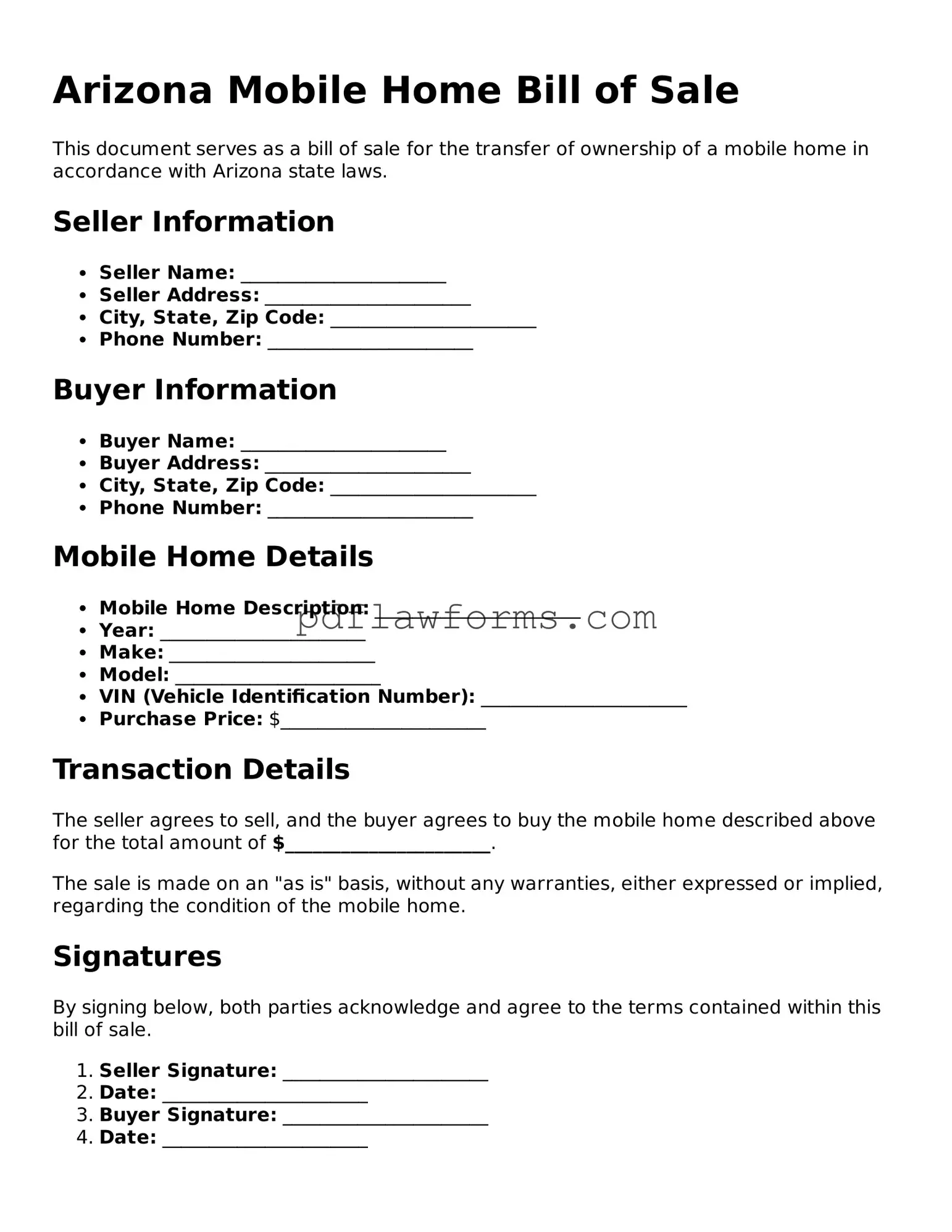Mobile Home Bill of Sale Form for the State of Arizona
The Arizona Mobile Home Bill of Sale is a legal document used to transfer ownership of a mobile home from one party to another. This form outlines essential details such as the buyer and seller's information, the mobile home's description, and the sale price. Completing this document is crucial for ensuring a smooth transaction and protecting both parties' rights.
To fill out the form, click the button below.
Make My Document Online

Mobile Home Bill of Sale Form for the State of Arizona
Make My Document Online
You’re halfway through — finish the form
Edit and complete Mobile Home Bill of Sale online, then download your file.
Make My Document Online
or
⇩ Mobile Home Bill of Sale PDF
